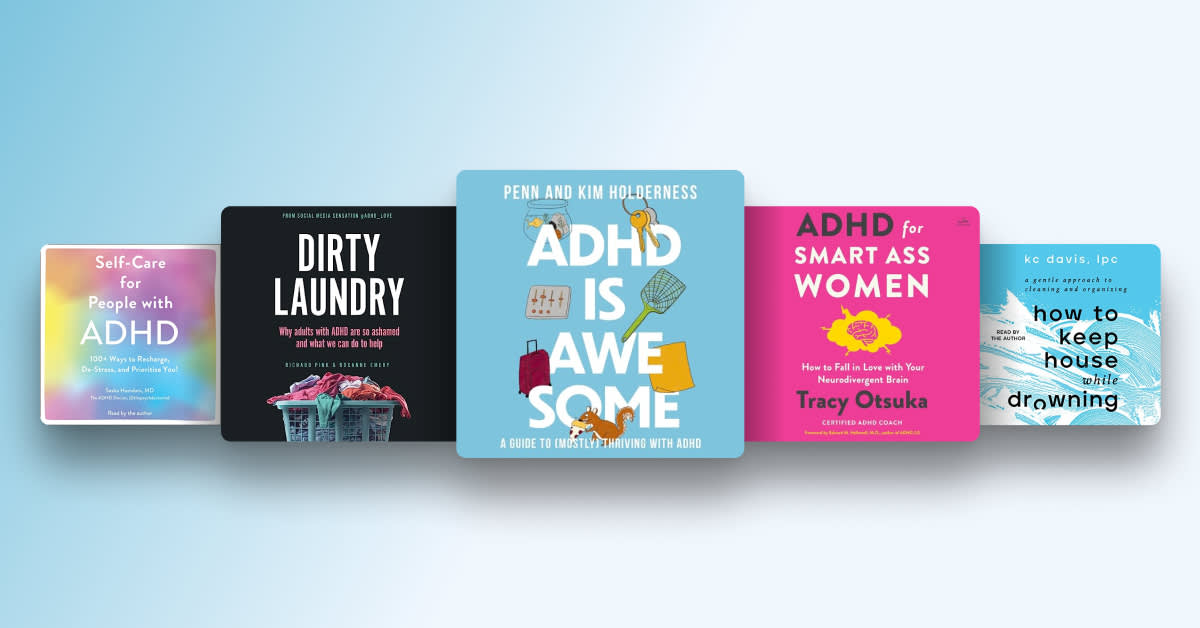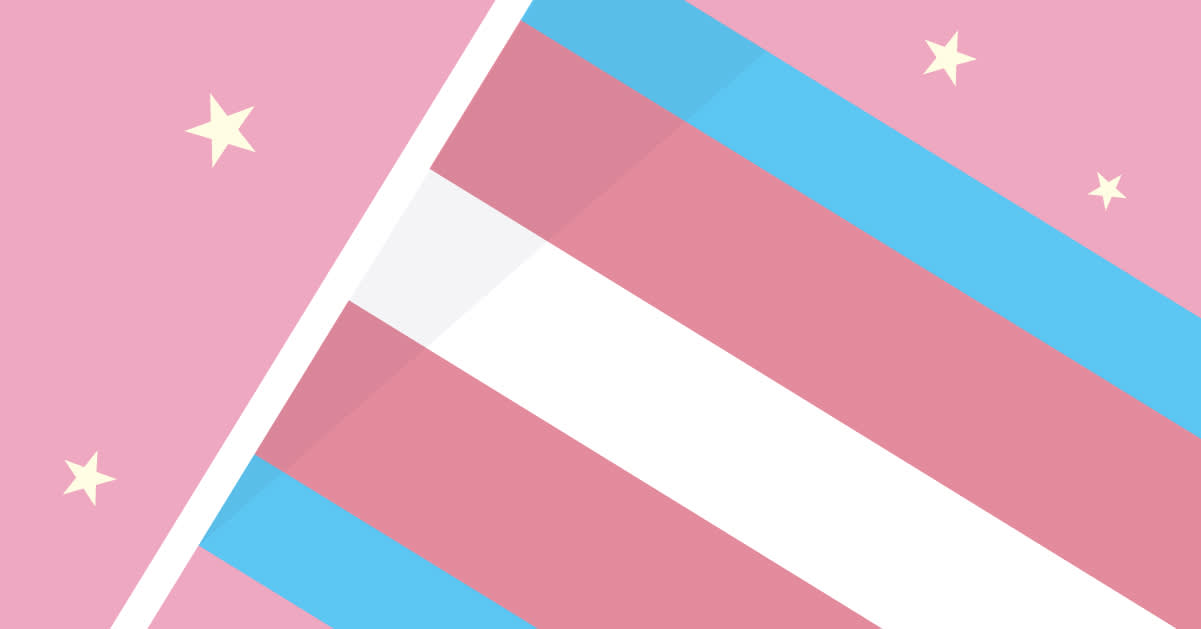I was 37 years old when I was diagnosed with ADHD. The way I was raised meant that not only was my ADHD not caught when I was young—it was dismissed as an excuse. Refrains of “If you just trained yourself to pay attention to details, you wouldn’t make so many mistakes ...” and “I know you think you’re trying, but if you were really trying, then you’d …” peppered my upbringing, driving me to mask anything about myself I thought undesirable.
Because I am extremely driven and an outstanding masker, my life looked fine from the outside. Only I knew the cyclone of thoughts, the anxiety and burnout that churned inside me. Like many people, it wasn’t until the pandemic hit that I had a chance to sit down for the first time in nearly four decades. This reprieve gave me the space to realize that my experience wasn’t everyone else’s experience.
Through referral after referral, multiple appointments with a psychiatrist, and much testing, I finally was able to name what was going on inside my brain and realize there wasn’t actually anything wrong with me. My difficulties with getting started on boring tasks, constantly replacing lost items, and forgetting details that others didn’t seem to have a problem remembering finally made sense. It took me so long to get a diagnosis because, individually, the symptoms are benign—it’s really not that uncommon to misplace something, get distracted, or grapple with setting priorities. All people struggle with impulse control or poor time management at some point in their lives.
Yet these seemingly innocuous traits can also indicate neurodivergence. Approximately 3.5% of the American population has ADHD, and though that seems a very small percentage, diagnoses in adults are on the rise. Since 2020, the diagnosis rate for adults in the United States has been four times higher than the diagnosis rate for children. Nevertheless, when the world is set up for the majority of folks, for those whose brains work typically, it can be frustrating to navigate the world if you’re in the minority—things that seem obvious to everyone else might elude you, or vice versa, the rest of the world might miss something easily understood by a mind with ADHD. Neurodiversity recognizes that people with neurodivergent brains face unique challenges and also wield unique strengths. These differences in thinking and processing are not deficits—there is no “right” way to think, learn, or behave.
Still, starting on your path of better understanding your neurodivergent brain can be a bit tricky. After my diagnosis, the first thing I wanted to do was learn as much as I could about how my brain worked. (Hyper focus, activate!) Whether you’re in a similar boat or simply looking to learn more, I’ve curated this list of resources to get you started on your own journey. And the best thing about this list? They’re all in audio, which is how I read most of the time—audiobooks and ADHDers are best friends because it gives their busy minds something to focus on while still allowing their bodies to move.
Staying on top of day-to-day tasks for people with ADHD is difficult, so making wellness a priority can be even harder. Psychiatrist, clinician, and TikTok sensation Sasha Hamdani, MD, has ADHD herself, and she’s since developed more than 100 tips and tricks on how neurodivergent folks can practice self-care. The audiobook is author-narrated, so listeners familiar with Hamdani from social media get the same familiar voice they’ve grown to love. It covers everything from destigmatizing ADHD to finding community to accepting yourself. There are solutions to help manage the negative sides of the disorder and fresh ideas on how to amplify the positive aspects. Specifically designed for neurodiverse brains, Self-Care for People with ADHD helps listeners learn how to care for their individual differences without making them feel shame for being different.
In this affirming guide, Sonny Jane Wise presents the neurodiversity paradigm, arguing that our thinking needs to shift so that we, as a society, accept differences rather than see view them as problematic. Wise examines the intersectionality of neurodivergence with disability, race, and gender. Through a combination of interviews, narratives, and their own experiences, Wise examines current systems and structures built from capitalist and racist frameworks that directly affect neurodivergent people. Through nine principles, We're All Neurodiverse emphasizes how we can move beyond exclusion and rejection to create a world that works for everyone.
Written by the founder of the ADHD Center of West Michigan and enlivened by the soothing voice of veteran narrator Suzie Althens, this audiobook explains how ADHD affects every aspect of a person’s life. Your Brain's Not Broken is designed to help listeners understand why they think, act, and feel the way they do. Dr. Tamara Rosier draws on her years of experience to provide practical tools that can improve all areas of the ADHDer’s life. People with ADHD have brains that are wired differently—and different certainly doesn’t mean bad or wrong. In this kind, encouraging guide, you’ll find strategies to help you embrace that truth.
Another follower favorite on TikTok, K.C. Davis is a licensed counselor who has ADHD. In How to Keep House While Drowning, she details, in her own voice, a practical, step-by-step guide to regaining control of an out-of-control house. More than that, Davis takes a compassionate approach to home care, which folks with ADHD desperately need. This listen eliminates so much of the shame and anxiety neurodiverse people feel around keeping their living space well-organized and tidy by reframing housework as simply functional and free from moral judgement.
A testament to the thriving neurodiversity community on social media, this listen is also written and narrated by viral creators—Richard Pink and Roxanne Emery from ADHD_love, who have hundreds of thousands of followers on both TikTok and Instagram. The authors are partners who have learned how to navigate life and thrive in a relationship with two different kinds of brains. Dirty Laundry is cleverly divided into sections of struggle, like impulsivity or money management. Included in each section are honest moments from authors’ own lives, narrated in their own voices so we get to hear the raw emotion behind each memory. Storytelling is so powerful, and this duo wields it to help those with ADHD reduce the sense of shame they may feel around their symptoms.
Internet sensation René Brooks is known for focusing on living with ADHD through the lens of Black experience on her website and YouTube channel, Black Girl, Lost Keys. On Life with Lost Keys, she speaks with guests and experts about different aspects of living the ADHD life through all its ups and downs. When managed and understood, living with ADHD gets better—especially when you realize you are not alone. This podcast is like listening to a good friend talk about experiences—funny, frustrating, exasperating, and bizarre—that are all immediately relatable to anyone living with ADHD.
Comedian Shappi Khorsandi thought she was a hopeless scatterbrain until her ADHD diagnosis in her 40s. With humor, wit, and warmth, she examines her life through this newfound understanding and finally starts to connect the chaotic dots. Scatter Brain will have you crying-laughing (and crying-crying) over how relatable living a life that often feels out of control truly is. Made even funnier through Khorsandi’s perfect delivery and timing, this memorable journey of self-discovery invites listeners to learn more about themselves as well.
While ADHD is one of the most prevalent neurological disorders in the United States, 75% of women with the disorder go undiagnosed due to a huge gender gap in research that doesn’t account for symptoms presenting differently from those in men. This lack of diagnosis leads to increased anxiety and depression as well as aggravates struggles with working memory, sleep, concentration, and energy. Thankfully, the tides are beginning to turn as we better understand how ADHD manifests in women. Not only does certified ADHD coach, podcast host, and now audiobook narrator Tracy Otsuka have a strong voice honed by her experience coaching thousands of women, but she also has ADHD herself. In ADHD for Smart Ass Women, she offers new tools, strategies, and systems designed to help increase focus, productivity, and confidence.
Viral content-creating couple Penn and Kim Holderness know what it’s like to live with ADHD. Penn was first diagnosed in college, where he developed a helpful system he wants to share with the world. In ADHD Is Awesome, you’ll learn about what it’s really like to live with an ADHD brain, how to deal with challenges with a positive attitude, and how to find humor in the hard parts. The two worked together on this listen to make it accessible for all brain types, a goal further accomplished by their engaging, approachable narration style.
As mentioned, ADHDers who identify as women face underdiagnosis at rates far higher than those who identify as men. This gap can be attributed in part to women adopting whatever styles of learning, working, communicating, and relating are deemed “acceptable” or “tolerable” by society. Often, women don’t even realize they have internalized these behaviors, which leaves a lot of unlearning to do. That’s where this listen, designed for women by women, comes in. A Radical Guide for Women with ADHD provides essential tools and exercises for learning how to break negative cycles and overcome rigid societal narratives. Blending contemporary thinking with proven ADHD treatment methodology, this freeing guide is fittingly voiced by Marni Penning, a talented narrator whose style is authoritative but reassuring.
How to ADHD offers practical strategies and insider insights from a trusted neurodivergent author. At a low point in her life post-divorce and living at home, Jessica McCabe hyper focused on learning more about her ADHD through research and conversations with experts in the field. Then, she shared what she learned on her award-winning YouTube channel in an easy-to-digest, friendly, judgment-free way. McCabe brings that same vigor, as well as her own voice, to this fresh new guide. She doesn’t shy away from the realities of life with ADHD—instead of fighting against a world that wasn’t designed for her, she learned how to work with her brain and, as she assures listeners, we can too.















